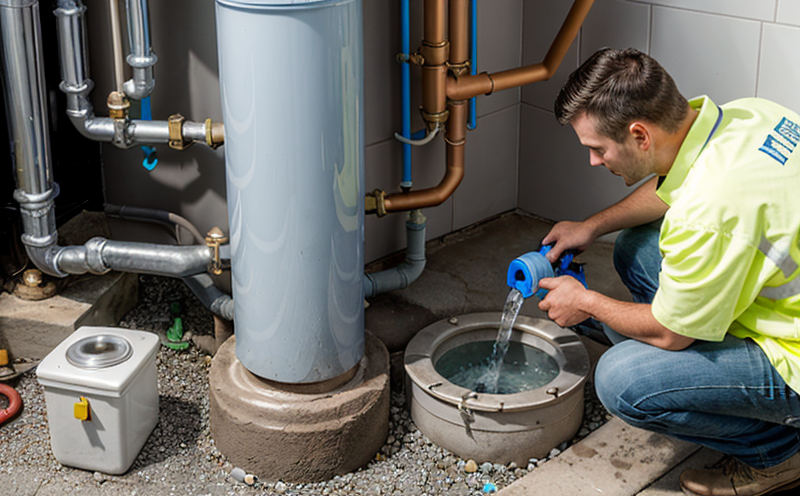EN 12201-4 Plastic Piping Verification
The EN 12201-4 standard provides a comprehensive framework for verifying the quality and performance of plastic piping systems used in building installations. This service focuses on ensuring that plastic pipes meet stringent requirements, providing peace of mind to property developers, builders, and owners.
The verification process involves a series of tests aimed at assessing various properties such as mechanical strength, flexibility, chemical resistance, and thermal stability. These tests are crucial for determining the suitability of plastic piping systems in different applications within buildings. The service covers all stages from initial material inspection to final installation checks.
Our team utilizes advanced testing equipment calibrated according to international standards like ISO 14670-2 and ASTM D395, ensuring accurate results. By adhering strictly to these guidelines, we guarantee reliable outcomes that align with both local regulations and international best practices.
The importance of thorough verification cannot be overstated, especially given the critical role plastic piping plays in maintaining water quality and system integrity over time. Our services are designed to protect against potential failures caused by poor material selection or substandard manufacturing processes.
Our EN 12201-4 Plastic Piping Verification service helps clients meet stringent regulatory requirements while enhancing overall project quality and durability. With our expertise in this field, we offer comprehensive solutions tailored specifically for your unique needs.
Scope and Methodology
The scope of EN 12201-4 Plastic Piping Verification encompasses several key areas ensuring compliance with the standard's requirements. The primary focus is on verifying that materials used in plastic piping systems meet specified criteria for physical properties, chemical resistance, and dimensional stability.
- Physical Properties: Testing includes tensile strength, elongation at break, impact resistance, and hardness.
- Chemical Resistance: Evaluates the ability of pipes to withstand exposure to various chemicals without degradation.
- Dimensional Stability: Ensures that dimensions remain consistent throughout manufacturing and use.
In addition to these core tests, other aspects may also be evaluated depending on specific project requirements. These might include hydraulic performance checks, pressure testing, and leak detection.
The methodology employed involves careful preparation of specimens followed by rigorous application of standardized test procedures. Each step is meticulously documented to provide clear evidence supporting the final assessment. Compliance with EN 12201-4 ensures that all components are fit for purpose before being installed in buildings.
Quality and Reliability Assurance
- Data Accuracy: All test data is cross-checked against multiple sources to ensure precision.
- Standard Compliance: Every procedure adheres strictly to relevant international standards such as ISO 14670-2, ASTM D395, and EN 12201-4.
- Traceability: Results can be traced back to original measurements for verification purposes.
- Consistency: Repeated tests yield consistent results, enhancing confidence in the outcome.
- Documentation: Comprehensive reports are provided detailing every aspect of the testing process and findings.
The combination of these measures ensures that only high-quality materials are approved for use in construction projects. This not only enhances safety but also extends the lifespan of infrastructure assets, reducing maintenance costs over time.
We pride ourselves on delivering accurate, reliable results that meet or exceed expectations set by industry standards. Our commitment to excellence guarantees that every project receives top-tier attention from start to finish.
Customer Impact and Satisfaction
Choosing our EN 12201-4 Plastic Piping Verification service offers numerous benefits for customers involved in building and infrastructure projects. Firstly, it ensures compliance with relevant regulations and industry best practices, minimizing risk of non-compliance penalties.
Secondly, by identifying potential issues early on through comprehensive testing, we help avoid costly rework or replacements later in the project lifecycle. This reduces overall cost while improving efficiency.
In addition to financial advantages, selecting this service contributes positively towards environmental sustainability goals. Using verified plastic piping helps minimize waste and promotes recycling efforts within the industry.
Client satisfaction is paramount for us. Our transparent communication throughout the process ensures that stakeholders remain informed about progress and outcomes. Positive feedback from satisfied customers attests to our dedication to delivering quality services consistently.





